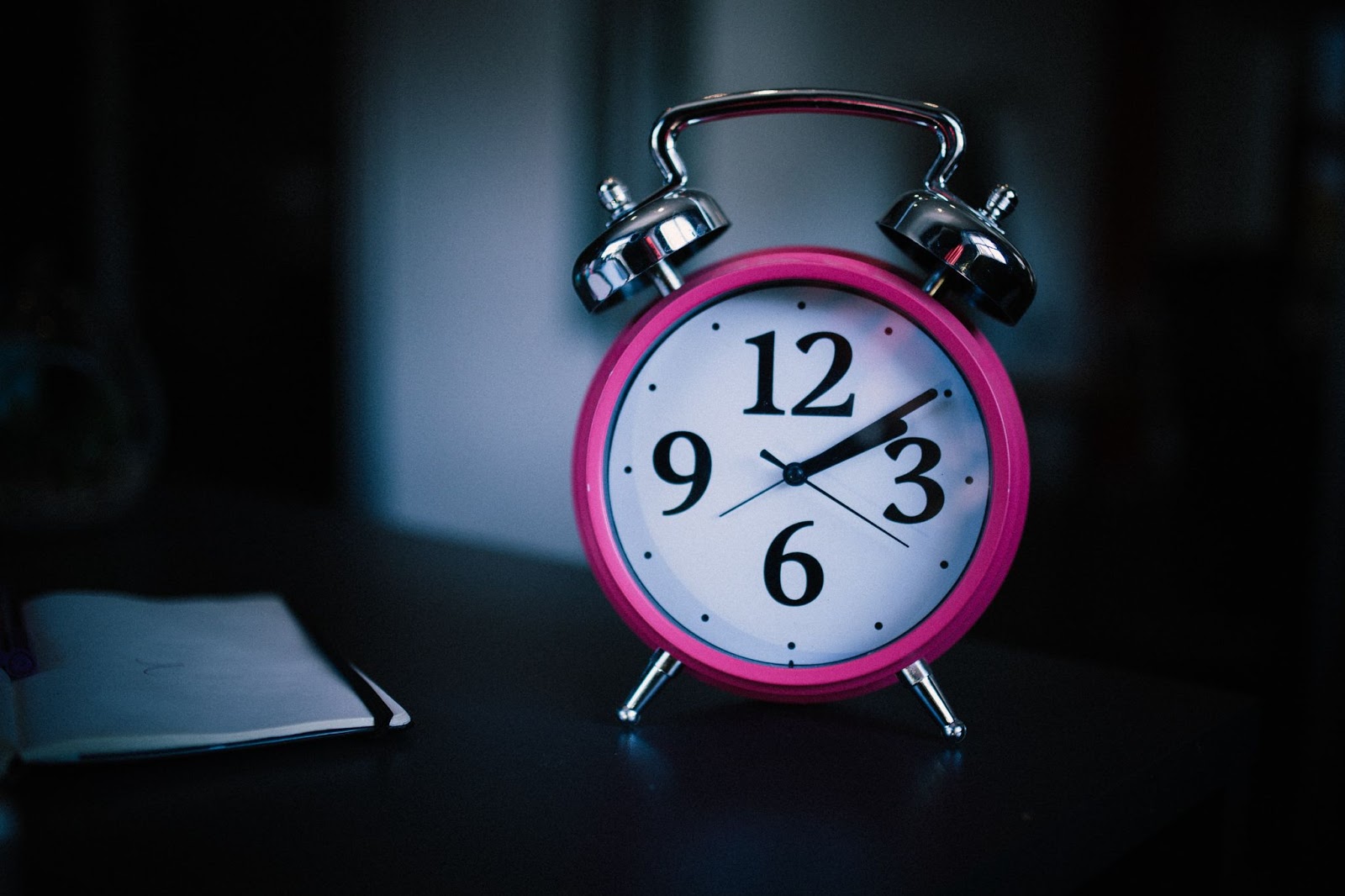Even if you get the recommended seven to nine hours of shuteye every night, you might still feel groggy, tired, or out of sorts if you go to bed at a different time each night. Getting the right amount of sleep is important, but so is getting consistent sleep.
But especially after certain events of stressful situations, that sleep schedule can really get thrown off. Getting back into the groove can be tough, but we’re here to help! Here are some tips and tactics to reset your sleep schedule for more restful slumber.
Why is a Sleep Schedule Important?
If your parents made you shut off the TV at nine o’clock every night, you probably felt a bit of resentment. But even though you didn’t realize it, this was actively teaching you the importance of a routine sleep every single night.
When you create habits for yourself, you can basically train your body to fall asleep more quickly, soundly, and for longer periods. Sticking to your sleep routine will reinforce these healthy habits and create more stable sleep patterns over time.
The main driver of your sleep routine is something called a circadian rhythm. This is also known as your body’s internal clock, as it’s crucial for managing your sleep-wake cycles at an unconscious level.
The circadian rhythm is largely driven by influence from light exposure. When it’s light outside, your brain associates this with daytime and alertness. But when it gets darker, your rhythm switches to promote relaxation and get you ready for bed.
Maintaining proper circadian rhythm is essentially how you maintain a proper sleep cycle. When the circadian rhythm gets thrown off, it can take some time to readjust it. And without proper sleep, you can experience an unbalanced mood, lower productivity, and decrease in cognition.
What Throws Off a Sleep Schedule?
Normal circadian synchronization can get thrown off by all sorts of things. Keeping a healthy sleep routine is hard — so don’t beat yourself up!
- Light Exposure: Putting away your phone or turning off the TV before bed is important because exposure to blue, electronic light can trick your brain into believing it is still daytime. This can make it much more difficult to fall asleep quickly.
- Jet Lag: When traveling through different time zones, your internal clock contradicts the external environment. This will naturally affect your bedtime routine.
- Fluctuating Bedtime: If you don’t have a set sleep and wake time, your body will never be able to establish a steady circadian rhythm.
- Caffeine: Stimulants like coffee and energy drinks will make you feel jittery, but it can take hours for them to leave your system. Limit caffeine consumption to the morning.
- Stress: One of the most common causes of sleeping issues is stress and anxiety. Stress can activate a response which causes your body’s heart rate to increase and blood pressure to rise, making you feel more alert and unable to fall asleep.
There are other factors too, but these are just some of the most common. Once you identify the cause of your thrown off sleep schedule, it can make it a bit easier to take steps towards correcting them.
How To Fix Your Sleep Schedule
Obtaining a proper sleep schedule can be achieved through consistent practices. Keep in mind that it can be hard to adjust to a new sleeping routine, and that’s perfectly normal. Just stick with it and results will follow!
Consistency is Key
There is no one-size-fits-all sleep and wake time that works for everyone. However, if you can establish a solid time every single night and morning to sleep and wake, your schedule will start to feel better in no time at all.
If you tend to be most productive in the morning, consider going to bed a bit earlier so you can get started with your day fast. Conversely, if you’re a night owl, you can sacrifice some of your morning so that you can be up later at night.
Just make sure that you’re getting seven to nine hours every single night. Some people might be able to sneak by with seven hours exactly, but others will really need to utilize all 540 minutes. Again, it’s entirely personal to you, so stick to a schedule that aligns best in your life.
Forget the Phone
One of the best ways to feel truly relaxed after a long day of work is to lay in bed and scroll through Tikok or fire up that next Netflix binge. However, the blue light emitted from your phone, tablet, or laptop can really mess up your circadian rhythm.
Try to put away your electronics for at least a half hour before bed. Instead, read a New York Time’s best seller, do some crossword or sudoku puzzles, or even start a daily journal. You can also use this time to practice yoga or meditation techniques, as these will really be able to get you in the zone to catch some z’s.
Snip the Naps
Trust us, we love napping too. But they can make it really difficult to go back to sleep at night. Try to avoid them if you can.
With that said, your natural body clock often triggers drowsiness between 1 pm and 4 pm. If you need a quick power nap, be sure to keep it under 30 minutes.
This is because long naps can actually make you feel more groggy for the longer you take one. There are four stages of sleep that your body goes through during a night’s rest, and each is essential for waking up feeling refreshed. If this natural process is disrupted, it can really throw you off. However, if you keep your naps contained under a half hour, you won’t hit an important stage and won’t wake up feeling as off-kilter.
The timing of naps is important too. Try taking short naps before 3 pm so it doesn’t make you less tired at night.
Stomp Out Stress
Being able to mentally and physically relax before bedtime is essential for healthy, happy slumber. Stress can have directly adverse effects on your sleep schedule, so try to clear your mind before hitting the pillow.
Yoga and meditation exercises are really great ways to wind down before bed. However, if you’re worried about working up a little sweat, you can try a CBD supplement to give you a soothing sensation that works to reduce symptoms of anxiety.
PhysiCOOL Activity
Being physically active isn’t just great for your overall cardiovascular health; it can also really help with your sleep schedule. Even mild activity like going for a brisk walk can be super beneficial when it comes to winding down in the evening. Not to mention, exercising outdoors is a great way to get some natural light exposure that can correct your internal clock.
If you’re a P90x pro or a kickboxing connoisseur, try to wrap up your high intensity exercises at least an hour before bed. These will naturally increase your heart rate, which can make it difficult for you to relax before bed.
Don’t Munch Too Much
Your circadian rhythm can respond to other factors as well, and your dinner time is one of them. You want to give your body enough time to digest your meal, so try eating dinner at least two to three hours before you hit the hay.
If you do get the munchies, eat something light so that it doesn’t make you feel bloated and gross when you finally snuggle up under your comforter.
Likewise, try to avoid alcohol at night when you can. Even though a nightcap might make you fall asleep faster, it won’t let you have a proper, uninterrupted night of rest.
In Conclusion
Sticking to a healthy sleep routine is important, because when your circadian rhythm is thrown off, so is your mood and cognition. It can be hard, though, especially since factors like jet lag, inconsistent schedules, stress, and diet can all affect our ability to gain a good night’s rest.
With that said, there are ways to fix this problem without having to switch up your entire routine. Something as simple as putting away your phone before bed or eating dinner a bit earlier can help get you back into the groove. Be sure to stay active during the day, stick to a consistent sleep/ wake time, and reduce the length and frequency of naps throughout the day.
If you’re ever lying awake at night, just try a few of these simple tricks. There are way too many sheep that still have to be counted, so we have to get you to bed as soon as possible!
If your sleep schedule just won’t re-align no matter what you do, Smile’s CBD gummies and oils might be the trick. CBD’s natural soothing properties work directly with your endocannabinoid system to bring you a sense of overall relief to help you get a better night’s rest. And that’s something worth smiling about.
Sources:
https://www.sleepfoundation.org/circadian-rhythm
https://www.nhlbi.nih.gov/health-topics/sleep-deprivation-and-deficiency




